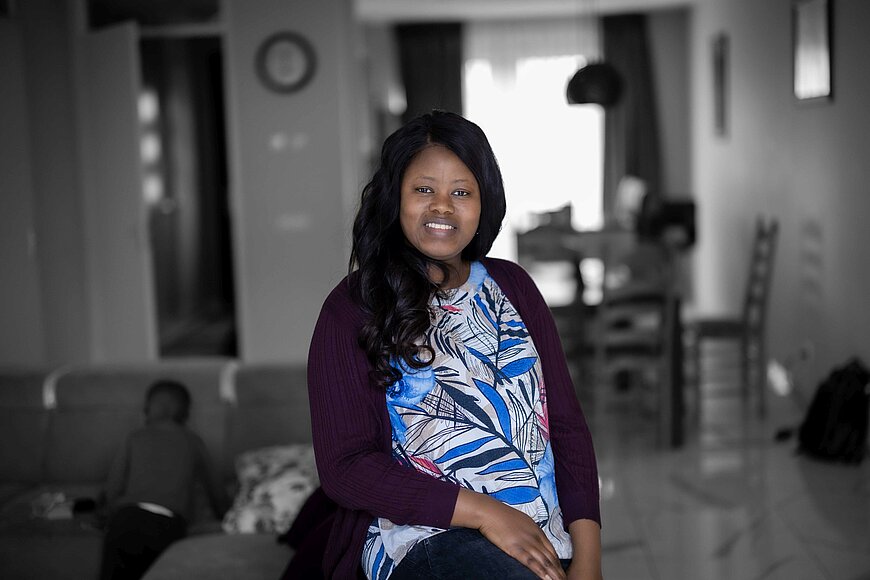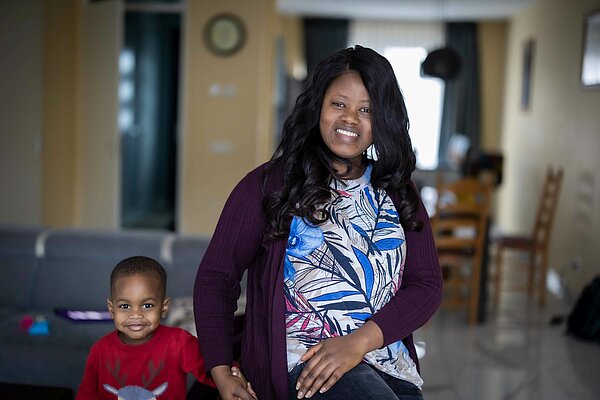'I want my children to really integrate well'

In 2011, Annabelle Tabi moved from Cameroon to the Netherlands to study Supply Chain Management (SCM). The Netherlands is now her home and the country where she raises her children. Although she is happy with that choice, she also encountered some obstacles. "Education is very different in Africa."
You have now lived in the Netherlands for fifteen years. How would you describe the country?
'The Netherlands is a structured, clean, and safe country, with equal opportunities for everyone, whether you are a man or a woman. When I was still a student, I fantasized about family life. I soon knew that if I had children, I would want to bring them into the world in this country. My Cameroonian husband thought so, too. We are now a family with a 3-year-old son and a 6-year-old daughter living in the Brainport region.'
'The Netherlands is a structured, clean, and safe country, with equal opportunities for everyone'
What is your main language at home?
'We speak English at home. Learning the Dutch language is really difficult for me and my husband. As a result, I sometimes worry about how I can help my children with homework later. I then think: will I succeed? And who can I ask for help if I don't? At the same time, it is very important that my children learn to speak Dutch at daycare and school. I want them to integrate well and not feel like the odd one out.'

Are you sometimes afraid that they will feel this way?
'Of course. Sometimes, I only hear afterward that there was a fun activity in the area that my children's classmates went to. My son and daughter didn't know about it, which is a shame. The school could help by playing a role in this by keeping us informed about it. As an international parent, we certainly need more information than a Dutch parent. Some things are normal for people born here, but not for me. For example, I don't know exactly what they do for Christmas dinner and what is expected of me. The same applies to daily life. In short, what is common in Dutch culture? Tell us.'
What do you think are the major cultural differences?
'In Africa, there is no after-school care, and children only go to school later when they are 6 years old. But then they are immediately taught from a book. Children start learning here in a playful way. In my native country, education professionals are a bit stricter; students are expected to sit still and pay attention. Nothing is right or wrong; it's just important that we are aware of the differences. This way, we understand and respect each other better.'
What is going well in the guidance of international children?
'My daughter is in an NT2 class and finishes earlier than children in a regular class. The shelter informed me that I could bring her earlier. I am also grateful for the small groups at after-school care and school. As a result, a lot of attention is paid to international children. Thanks to that, they learn the language very quickly.'
What challenges do you face as an international parent?
'I find contacting parents of friends from school a challenge. I also want my children to meet up with Dutch children. But how do I do that? This also applies to: how do I choose a primary school? And how do I register my child? We just walked into a school then, but only some people dare do that. I therefore hope that more attention will be paid to this in the future.'